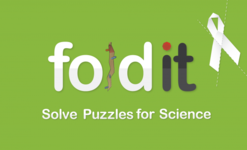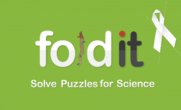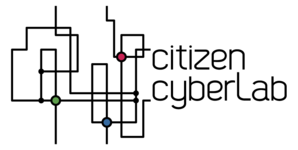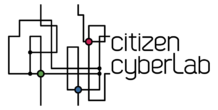Fold It: Difference between revisions
mNo edit summary |
mNo edit summary |
||
| Line 14: | Line 14: | ||
|field_team_link=http://fold.it/portal/info/credits | |field_team_link=http://fold.it/portal/info/credits | ||
|field_team_location=University of Washington | |field_team_location=University of Washington | ||
|field_Haklay_typology= | |field_Haklay_typology=distributed intelligence | ||
|field_volonteer_computing=no | |field_volonteer_computing=no | ||
|field_volonteer_thinking=no | |field_volonteer_thinking=no | ||
Revision as of 22:47, 10 October 2013
Cs Portal > List of citizen science projects > Fold It - (2013/09/26)
IDENTIFICATION
- Beta start date : N/A
- End date : Still open.
- Natural sciences > Biochemistry (biology/medicine/neuroscience)
- Others in the same subject areas: Air Quality with Biomarkers, Andromeda Project, Bat detective, Budburst... further results
- Others projects about biology/medicine/neuroscience: Cell Slider, Eterna, EyeWire, Worm Watch Lab
⇳ Description Fold It is a computer game enabling volonteers to contribute to biochemistry research by resolving proteins puzzles. The game is part of an experimental research project, and is developed by the University of Washington's Center for Game Science in collaboration with the UW Department of Biochemistry. ➠ Purpose Identify the structural configuration of natural proteins to study and understand proteins better. ? Research question "As described above, knowing the structure of a protein is key to understanding how it works and to targeting it with drugs. A small protein can consist of 100 amino acids, [[Has research question::while some human proteins can be huge (1000 amino acids). The number of different ways even a small protein can fold is astronomical because there are so many degrees of freedom." from official project website]]
TEAM
University of Washington
Project team page http://fold.it/portal/info/credits Leader: David Baker Institution: Partner institutions: Contact:
USER TASKS
CONTRIBUTION TYPE: data analysis
PARTICIPATION TYPOLOGY: distributed intelligence
GAMING GENRE Puzzle
GAMING ELEMENTS: NONE
◉ Tasks description
⤯ Interaction with objects
▣ Interface
- Data type to manipulate: 3D manipulation
- interface enjoyment: cool/attractive
- Interface usability:
GUIDANCE
- Tutorial: Somewhat
- Peer to peer guidance: Somewhat
- Training sequence: Somewhat
- Individual performance: Somewhat
- Collective performance: Somewhat
- Research progress: Somewhat
❂ Feedback and guidance description
COMMUNITY
- Main news site: http://fold.it/portal/blog
- Frequency of project news updates: weekly
- Type of events:
- Frequency of events :
⏣ Community description
- Community size (volounteers based) 6398
- Role:
- Interaction form:
- Has official community manager(s): N/A
- Has team work N/A
- Other: Forum fairly active.
- Community led additions:
Other information
PROJECT
Url:http://fold.it/portal/
Start date: 2008/05/08
End date: Still open
TEAM
Official team page:http://fold.it/portal/info/credits
Leader: David Baker
Main location: University of Washington
PROJECT DEFINITION
Subject
Natural sciences > Biochemistry (biology/medicine/neuroscience)
Description
Fold It is a computer game enabling volonteers to contribute to biochemistry research by resolving proteins puzzles. The game is part of an experimental research project, and is developed by the University of Washington's Center for Game Science in collaboration with the UW Department of Biochemistry.
Purpose.
Identify the structural configuration of natural proteins to study and understand proteins better.
Research question.
"As described above, knowing the structure of a protein is key to understanding how it works and to targeting it with drugs. A small protein can consist of 100 amino acids, while some human proteins can be huge (1000 amino acids). The number of different ways even a small protein can fold is astronomical because there are so many degrees of freedom." from official project website
ABOUT PARTICIPANT TASKS
.
.
| Grey typology | Participation typology | Contribution type: | ||||||||||||||||||||||||||||
|---|---|---|---|---|---|---|---|---|---|---|---|---|---|---|---|---|---|---|---|---|---|---|---|---|---|---|---|---|---|---|
|
|
|
||||||||||||||||||||||||||||
| Gaming | ||||||||||||||||||||||||||||||
| Genre: puzzle | Gaming elements: | |||||||||||||||||||||||||||||
| Interface | ||||||||||||||||||||||||||||||
| Data type to manipulate: 3D manipulation | interface enjoyment: cool/attractive Interface usability: |
Member profiles::N/A Member profile elements: |
||||||||||||||||||||||||||||
ABOUT GUIDANCE AND FEEDBACK
| Guidance | Feedback on | ||||||||||||
|---|---|---|---|---|---|---|---|---|---|---|---|---|---|
|
|
.
COMMUNITY
| Tools | News & Events |
|---|---|
|
Communication: website, blog, forum, wiki, other |
Main news site: http://fold.it/portal/blog |
| Community description | |
|
Community size (volounteers based): 6398 |
|
Other information about community: Forum fairly active.
Community led additions:
OTHER PROJECT INFORMATION
Foldit main.png Yes [[has completion level::Low]
http://fold.it/portal/info/credits
University of Washington
Yes
Biochemistry
Natural sciences
biology/medicine/neuroscience
Identify the structural configuration of natural proteins to study and understand proteins better.
"As described above, knowing the structure of a protein is key to understanding how it works and to targeting it with drugs. A small protein can consist of 100 amino acids, [[Has research question::while some human proteins can be huge (1000 amino acids). The number of different ways even a small protein can fold is astronomical because there are so many degrees of freedom." from official project website]]
Fold It
data analysis
distributed intelligence 3D manipulation, other: Thinking: no Computing: no Sensing: no Gaming: yes
puzzle
cool/attractive
N/A N/A N/A N/A N/A N/A
N/A
N/A website, blog, forum, wiki, other Twitter, Facebook
http://fold.it/portal/blog
6398
weekly
Forum fairly active.
N/A
Low
Bibliography
| BIBLIOGRAPHY |



